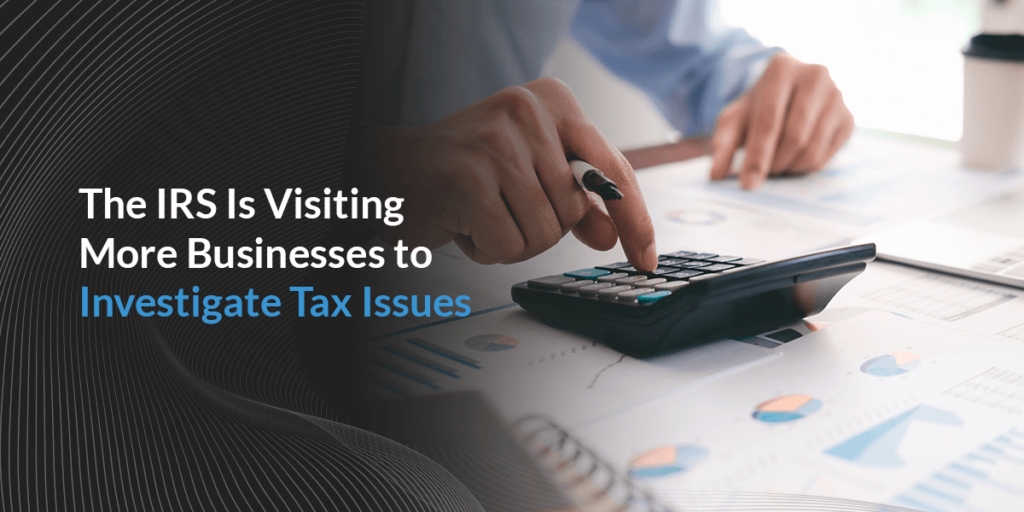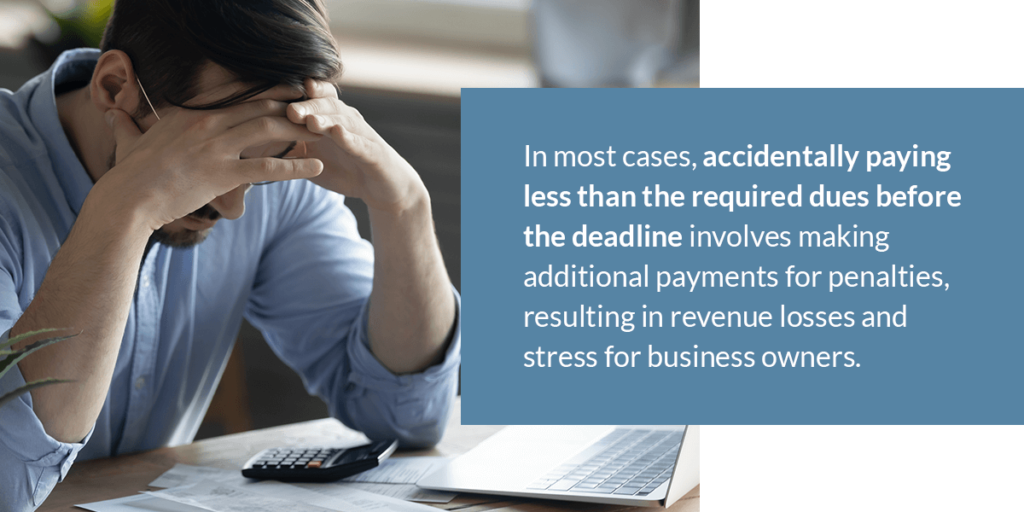
100+ Years of Combined Tax Resolution Experience.
100+ Years of Combined Tax Resolution Experience.
The IRS’s Criminal Investigation Division is looking to pursue more cases in the coming years, especially those dealing with cryptocurrencies. The division identified $1.8 billion in tax fraud in 2019 alone, according to the annual report. If you own a business, you should be aware of how tax investigations could impact your operations and how to avoid scrutiny from the IRS. Learn more below:
Table of Contents
How Are Tax Violations Investigated?
The Internal Revenue Service Criminal Investigation is a division of the IRS that investigates potential criminal violations of the Internal Revenue Code and related financial crimes. The division investigates things like fraudulent tax preparers, abusive tax schemes and corporate fraud, to name a few.
The IRS will open an investigation once a revenue agent, or auditor, detects suspicious patterns that could indicate fraudulent activity. A revenue collection officer might also indicate possible fraud, leading to the opening of a case. Next, a Criminal Investigation agent will conduct a preliminary analysis to determine if a crime might have occurred. Then, the evidence collection phase begins. Once a report is made and passes approval, the IRS will pursue criminal charges.
How Do I Know if I Committed a Tax Violation?
In most cases, accidentally paying less than the required dues before the deadline involves making additional payments for penalties, resulting in revenue losses and stress for business owners. Along with potential criminal tax evasion activity, the IRS investigates to ensure you have paid the correct amounts.
A case where you owe unpaid taxes could result in the IRS withdrawing money from your bank account, levying your Social Security checks, garnishing your paychecks or even seizing assets. If you overpay by mistake, you will receive a reimbursement check in the mail thanks to routine investigation procedures, but it will take a while to get your money back. The process works much more smoothly with the help of a trusted attorney who is used to aiding clients in tax investigations.
What Is the Conviction Rate for IRS Investigations?
The 2019 annual report showed that the division had an impressively high 91.2% conviction rate for all financial crimes. In order for someone to go to trial for a crime involving a fraudulent tax return, they must first be formally accused of breaking the law. Because most tax issues investigated by the IRS are unintentional and involve small amounts, many business owners who accidentally violate tax codes can stay out of a tax courtroom.
The division for Criminal Investigations did see a drop in their overall number of investigations and prosecutions in 2019. The report also highlighted a continued focus on employment tax, cryptocurrency and cybercrime by the agency. The decrease has largely been attributed to the division losing more special agents than they can hire rather than a decline in intentional tax violations. The division sees anywhere from 130-150 agents retire every year, and it usually takes a few years for new agents to be trained and start working cases.
To combat this, the division is ramping up its hiring initiatives and is collaborating with other government agencies to combat new threats related to cryptocurrency and cybercrime. One area that has seen an increase in cases has been in the division’s employment tax enforcement area. The division saw an increase in investigations with 250 cases for 2019 and with an incarceration rate of 84%.
Work With Polston Tax Resolution & Accounting When You Need Help With the IRS
Reaching out to a tax attorney to handle your case or review your situation can simplify the process for you. Ensure everything goes correctly and face tax issues confidently with Polston’s help. Contact us for a free consultation, and let us advocate for you.
Learn More About IRS Account Investigation
Additional Readings

Many people discard IRS notices and letters because they do not know what to do with them or hope the problem disappears. However, failing to respond to the notices can result in penalties and other adverse implications. The IRS sends these letters for a reason, and you must take them seriously. This guide discusses the...

With the value of Bitcoin passing $20,000 in 2020, the interest in cryptocurrency is at an all-time high. As cryptocurrencies continue to gain popularity among investors, the IRS has needed to rework how it regulates the virtual market. To assist the IRS with this monumental task, the U.S. Department of Justice (DOJ) released a detailed Cryptocurrency Enforcement...

The IRS established its Private Debt Collection program in 2016 after Congress passed a federal law that requires the IRS to contract with Private Collection Agencies, or PCAs. The agencies are hired to assist the IRS in collection action with certain outstanding, inactive tax debts on the government’s behalf. Read on to learn more about...

Nobody likes paying taxes, but just like eating our veggies, it’s a necessity and something we all grow used to in time. While the regular ins and outs of tax season may be somewhat stressful, an unexpected letter from the IRS can be panic-inducing. Fortunately, there’s no need to panic! The vast majority of IRS...

The IRS’s Criminal Investigation Division is looking to pursue more cases in the coming years, especially those dealing with cryptocurrencies. The division identified $1.8 billion in tax fraud in 2019 alone, according to the annual report. If you own a business, you should be aware of how tax investigations could impact your operations and how to...

We’re in an era in which more small businesses are launching like wildfire. Many people find starting a small business of their own as easy as a piece of cake. However, most of the time, what they fail to prioritize are some of the major players involved in smoothly operating their small business. A...



